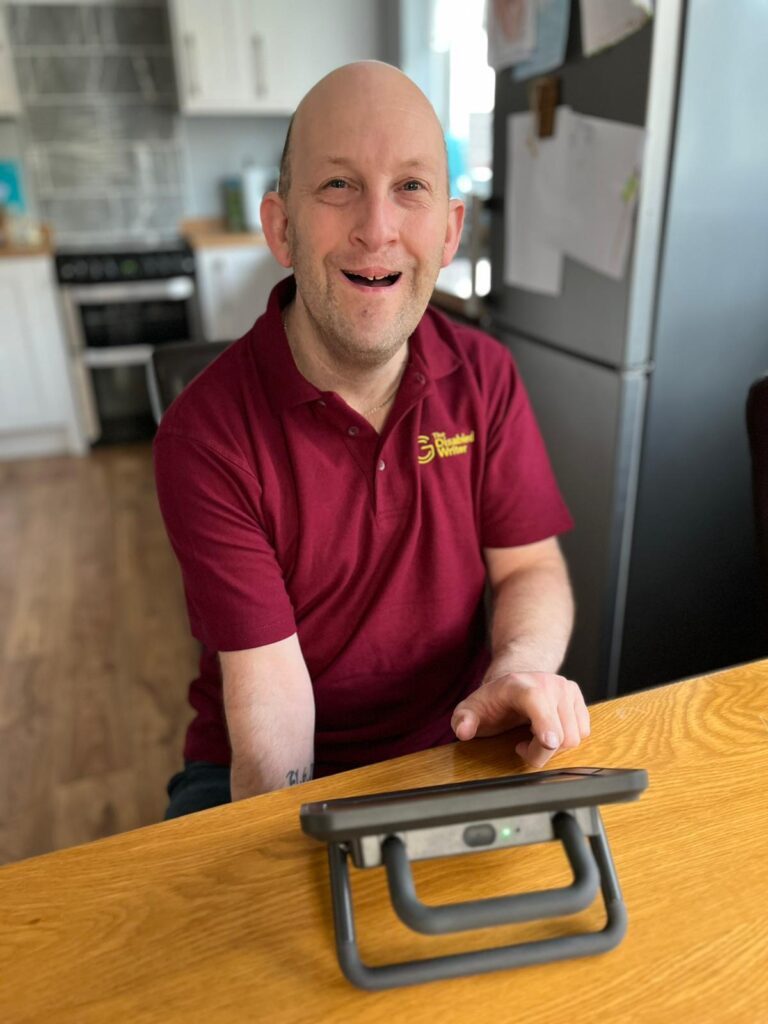Communication is often taken for granted until it’s not there. For me, living with cerebral palsy and a severe speech impairment, the difference between being listened to and being overlooked these days is simple: Augmentative and Alternative Communication and advancing AI-voice technology.
They aren’t devices or luxuries. They are assistive technology that upholds our dignity and are the key to being part of conversations that shape our lives.

Although my relationship with AAC hasn’t always been plain sailing and I’ve had a love-hate connection with it over the years, it’s now clear that with assistive technology improving in accessibility, it is enriching my daily life and helping me educate others about disability and acceptance.
Without AAC, my words are often second-guessed. People jump in, finish my sentences, or answer on my behalf. With my SmartBox TalkPad 8, I take back control. I tap, I speak, I’m heard.
AI-voice goes further. Instead of sounding like a machine, I can have a voice that carries personality, warmth, and identity. That’s not a small upgrade, that’s self-expression.
AAC and AI-voice aren’t just about giving individuals tools. They change how society understands communication:
If AAC and AI-voice are to truly shape the future of communication, they must stop being treated as add-ons. That means:
The future of communication isn’t about technology replacing human voices. It’s about expanding what we mean by ‘voice’ in the first place. AAC and AI-voice carry the potential to make society listen more widely, more fairly, and more humanely.
For me, these tools are the difference between silence and leadership. For the next generation, they can be the difference between being spoken over and being truly heard.
But this future won’t build itself. Access to AAC and AI-voice must be recognised as a right, not a privilege. That means:
This is a campaign that needs both individual voices and collective pressure. I’m asking you to stand with me, speak out about it, write about it, raise it in classrooms, offices, and communities. At the same time, call on leaders, educators, and policymakers to make AAC and AI-voice accessible for everyone who needs them.
Together, we can create a society that listens properly, one where no voice is left out of the conversation.